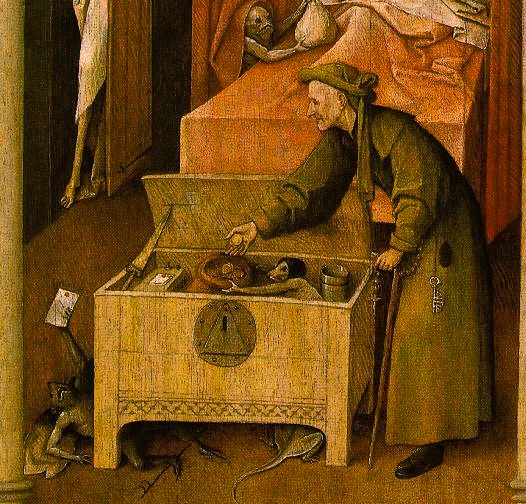Monday
The Guardian recently quoted F. Scott Fitzgerald’s famous quote about the rich in an article that sounds like it came from The Onion. Or perhaps it’s an April-Fool-in-October joke. Anyway, it’s about the psychological problems that the 1% are experiencing from having too much money.
First, a quick note on the Fitzgerald quote, which appeared in his short story “The Rich Boy,”not in a conversation with Ernest Hemingway. In fact, Fitzgerald was just as critical of the rich as Hemingway was. Here’s the passage:
Let me tell you about the very rich. They are different from you and me. They possess and enjoy early, and it does something to them, makes them soft where we are hard, and cynical where we are trustful, in a way that, unless you were born rich, it is very difficult to understand. They think, deep in their hearts, that they are better than we are because we had to discover the compensations and refuges of life for ourselves. Even when they enter deep into our world or sink below us, they still think that they are better than we are. They are different.”
I won’t go into “The Rich Boy” here as I’ve explored its insights into the wealthy in an earlier post. But as to the article, the quotations from therapists administering to the 1% sound like they could have been delivered by Lemuel Gulliver when he gets his sense of proportion spectacularly wrong. Or maybe by Lady Bracknell in The Importance of Being Earnest when she worries about the bad effects of education on the upper classes (it may “lead to acts of violence in Grosvenor Square”). For instance, here’s Clay Cockrell, a one-time Wall Street worker turned therapist:
There is guilt over being rich in the first place, he said. There is the feeling that they have to hide the fact that they are rich. And then there is the isolation – being in the 1%, it turns out, can be lonely.
Here’s Jaimie Traeger-Muney, whose name sounds as though it has been taken from an 18th century comedy:
“The Occupy Wall Street movement was a good one and had some important things to say about income inequality, but it singled out the 1% and painted them globally as something negative. It’s an -ism,” said Jamie Traeger-Muney, a wealth psychologist and founder of the Wealth Legacy Group. “I am not necessarily comparing it to what people of color have to go through, but … it really is making value judgment about a particular group of people as a whole.”
The media, she said, is partly to blame for making the rich “feel like they need to hide or feel ashamed.”
And further on:
“You can come up with lot of words and sayings about inheritors, not one of them is positive: spoiled brat, born with a silver spoon in their mouth, trust fund babies, all these things,” she said, adding that it’s “easy to scapegoat the rich.”
“Sometimes I am shocked by things that people say. If you substitute in the word Jewish or black, you would never say something like that. You’d never say – spoiled rotten or you would never refer to another group of people in the way that it seems perfectly normal to refer to wealth holders.”
So the real victims are not those whose lives are blighted by systemic racism, who grow up in crime-riddled neighborhoods, who attend bad schools, and who have few promising job opportunities. Oh, and who are accused of wanting “free stuff.” No, the real victims are those who suffer from wealth prejudice. Or at any rate, they are victimized the way that minorities are victimized.
Maybe I’d feel more sympathetic if these wealthy Americans were leaning on Congress to strengthen the social safety net and to raise their own taxes. In fact, I think using their wealth to help society would be far healthier than getting therapeutic reassurance that they are worthy people.
It sounds, however, like they want the perks of wealth while depriving those beneath them of their one consolation. In “Epistle from Mrs. Yonge to her Husband,” about an egregious instance of a woman victimized by the double standard, Lady Mary Wortley Montagu explains what this consolation is:
But this last privilege I still retain;
Th’oppressed and injured always may complain.
If you have been born privileged, you can either put that privilege to good use—in which case all will praise you—or you can buy yachts and mansions with it. Dante (and Jesus too for that matter) would say your problems are your punishment, but that’s a topic for a future post. In the meantime, we don’t want to hear about your hurt feelings.
